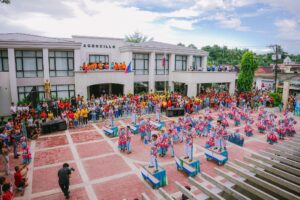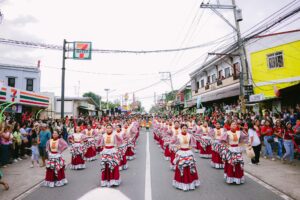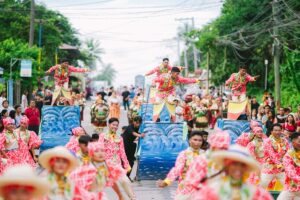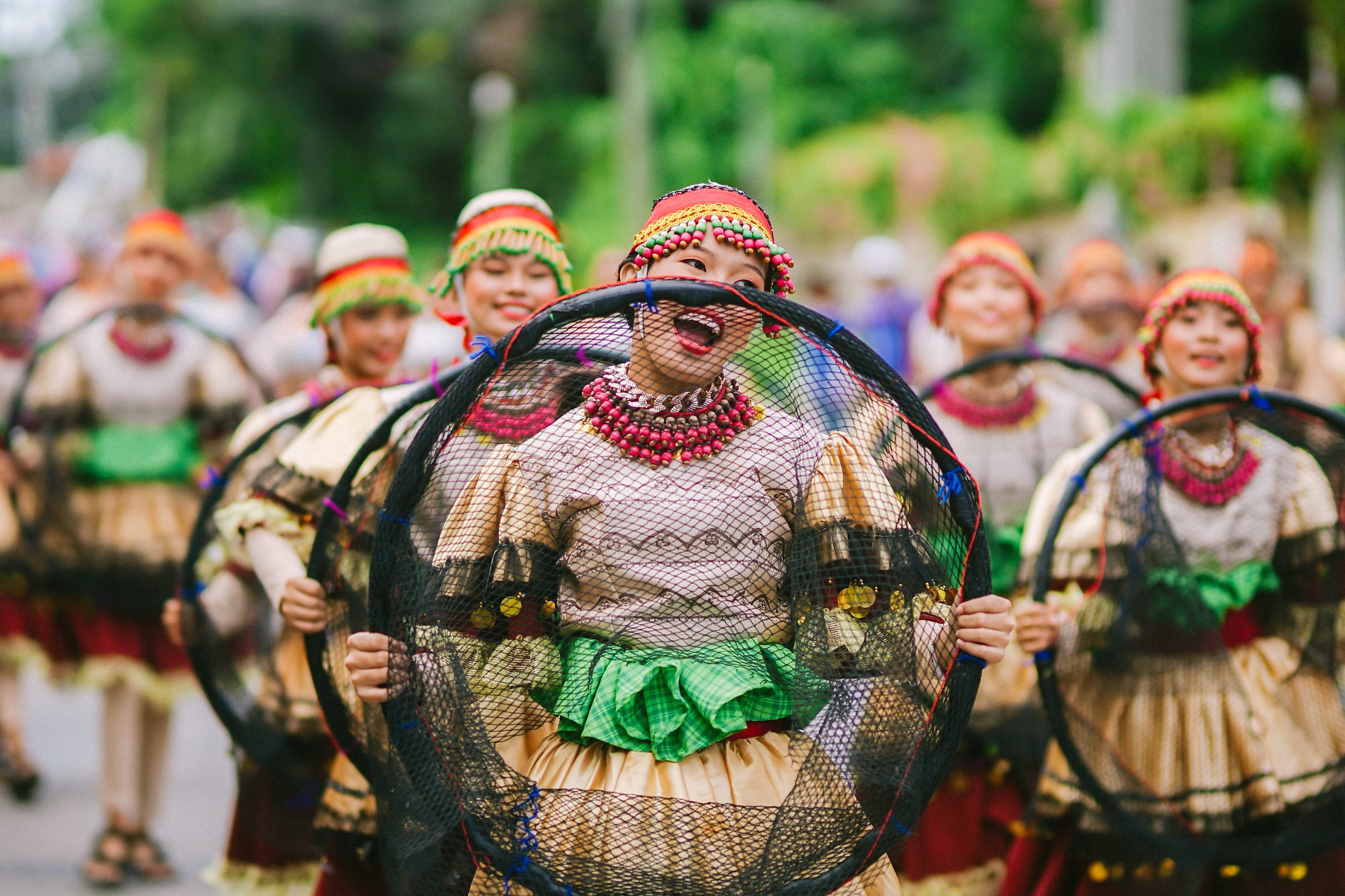
Historical Significance
The Tawilis Festival was first celebrated in 2009 as Agoncillo’s official entry to the province-wide Ala Eh Festival, also known as the Festival of Festivals in Batangas. Over time, it evolved into a major local celebration that showcases the town’s pride, unity, and gratitude for the lake that sustains its people.
The tawilis holds a special place in Agoncillo’s identity. Following the eruption of Taal Volcano in the 1800s, the lake became cut off from Balayan Bay, and marine species were trapped within it. Over generations, the tawilis adapted to freshwater, becoming a unique species found nowhere else in the world. The festival honors this remarkable natural history and the enduring relationship between Agoncillo’s people and their environment.
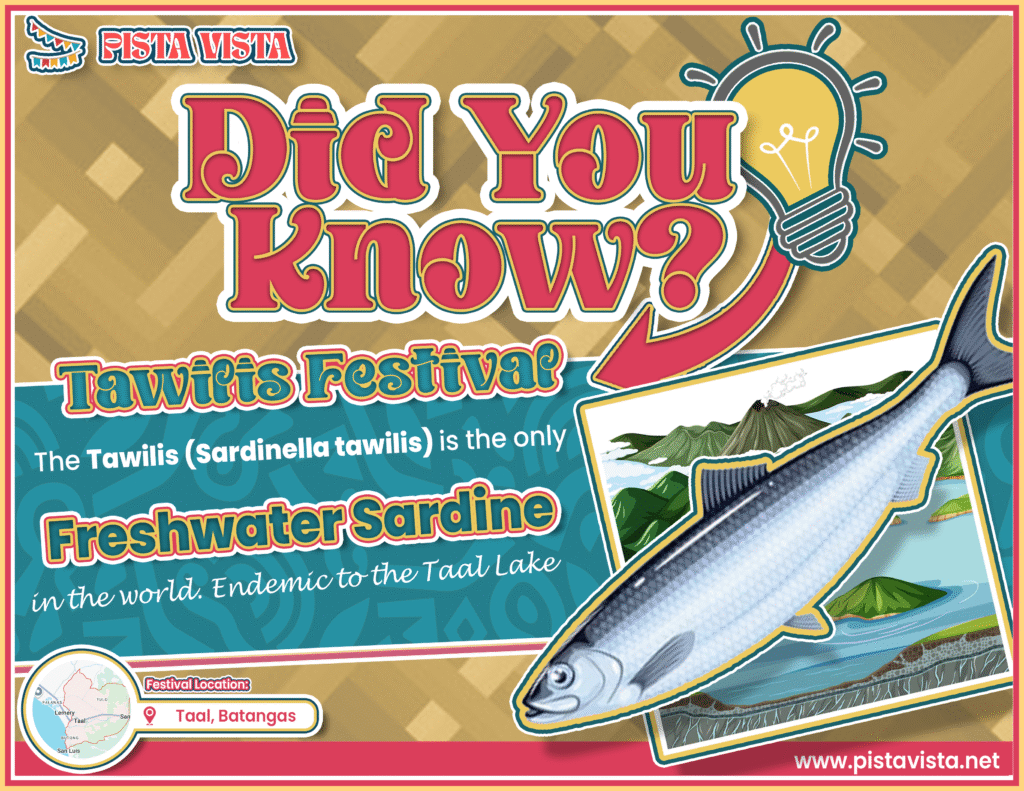
Unique Traditions
The Tawilis Festival features a week of festivities filled with dance, food, and community pride. Among the highlights are the lively street dance and court dance competitions that fill the town with color and energy. A trade fair also showcases local products and delicacies, including dishes made with tawilis, highlighting the community’s creativity and craftsmanship.
The months of August to September are considered the best time to catch tawilis, as calmer winds and gentler waves in the lake make for ideal fishing conditions. This natural cycle connects directly to the timing of the festival, reinforcing the community’s deep connection to the lake’s resources.
Video from Maam Rhea
Cultural Impact
The Tawilis Festival has become an integral part of Agoncillo’s cultural identity and a symbol of Batangas pride. It not only celebrates a rare species unique to Taal Lake but also promotes environmental awareness and the importance of conservation.
The festival strengthens community bonds and supports local tourism and small businesses. Each year, it draws visitors from nearby towns and cities who come to experience the joyful atmosphere, local food, and Batangueño hospitality. Despite natural and global challenges, such as the Taal Volcano eruption and the pandemic, the people of Agoncillo have continued to uphold this tradition, showing resilience and unity through celebration..

